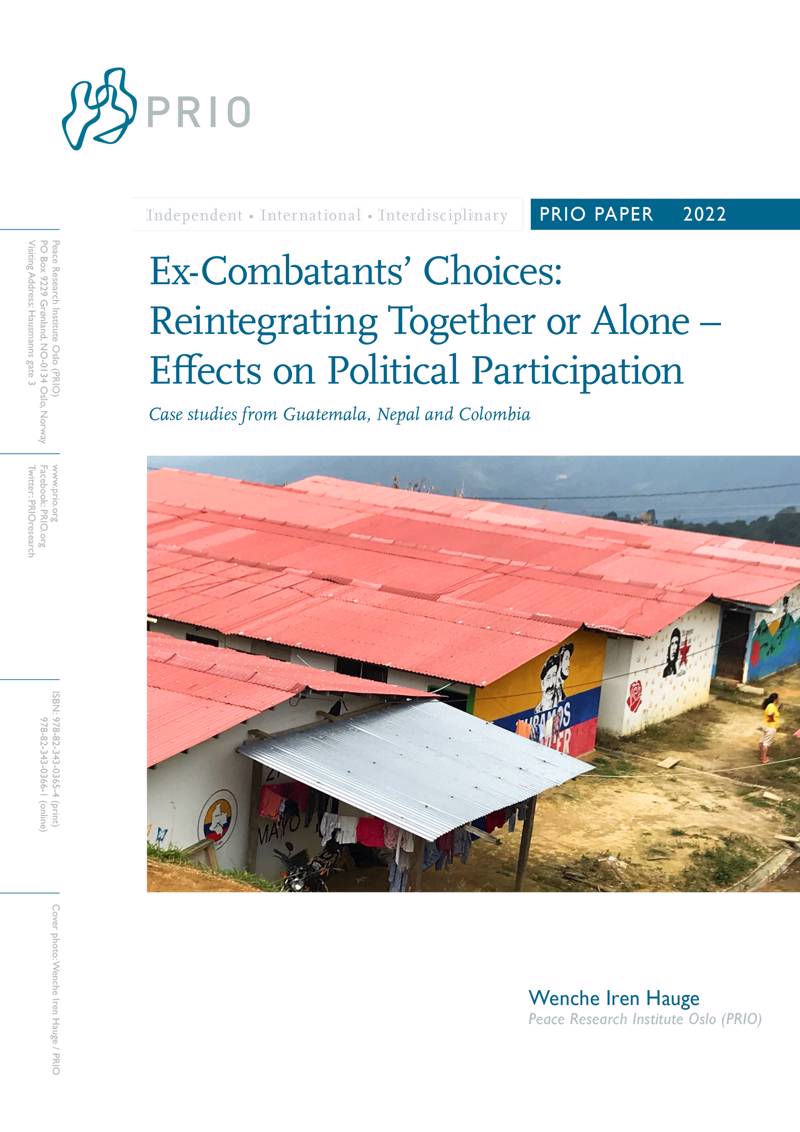
In a new PRIO Paper, Senior Researcher Wenche Iren Hauge assesses how the reintegration processes of ex-combatants affect their political participation. The paper draws on case studies from Guatemala, Nepal and Colombia.
Most peace agreements are formulated with the intention of transforming ex-combatants into socially and politically active persons who can work for their political goals through peaceful means rather than through arms. But how can this intention become reality?
The PRIO paper entitled 'Ex-Combatants' Choices: Reintegrating Together or Alone – Effects on Political Participation' is based on 153 interviews with female and male ex-combatants from the URNG in Guatemala, the PLA in Nepal and the FARC in Colombia. The paper incorporates a gender perspective into its analysis. The main research question in the paper is related to the character of the reintegration processes in these countries. Does it make a difference for the ex-combatants' social and political participation whether they reintegrate collectively or individually and, if so, in which ways?
The paper is an output from the project 'Ex-Combatants' Choices: Reintegrating Together or Alone', funded by the Norwegian Ministry of Foreign Affairs.





